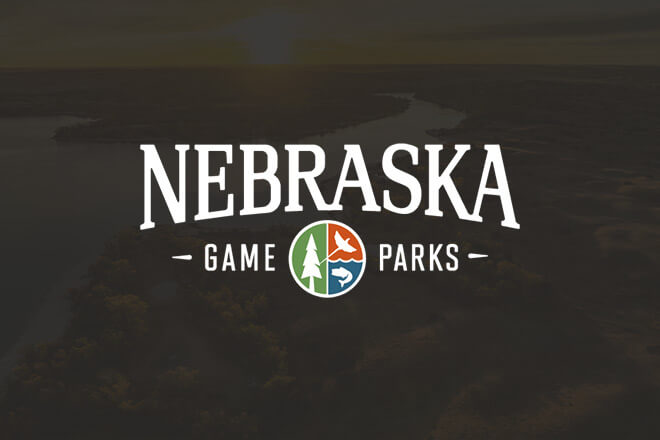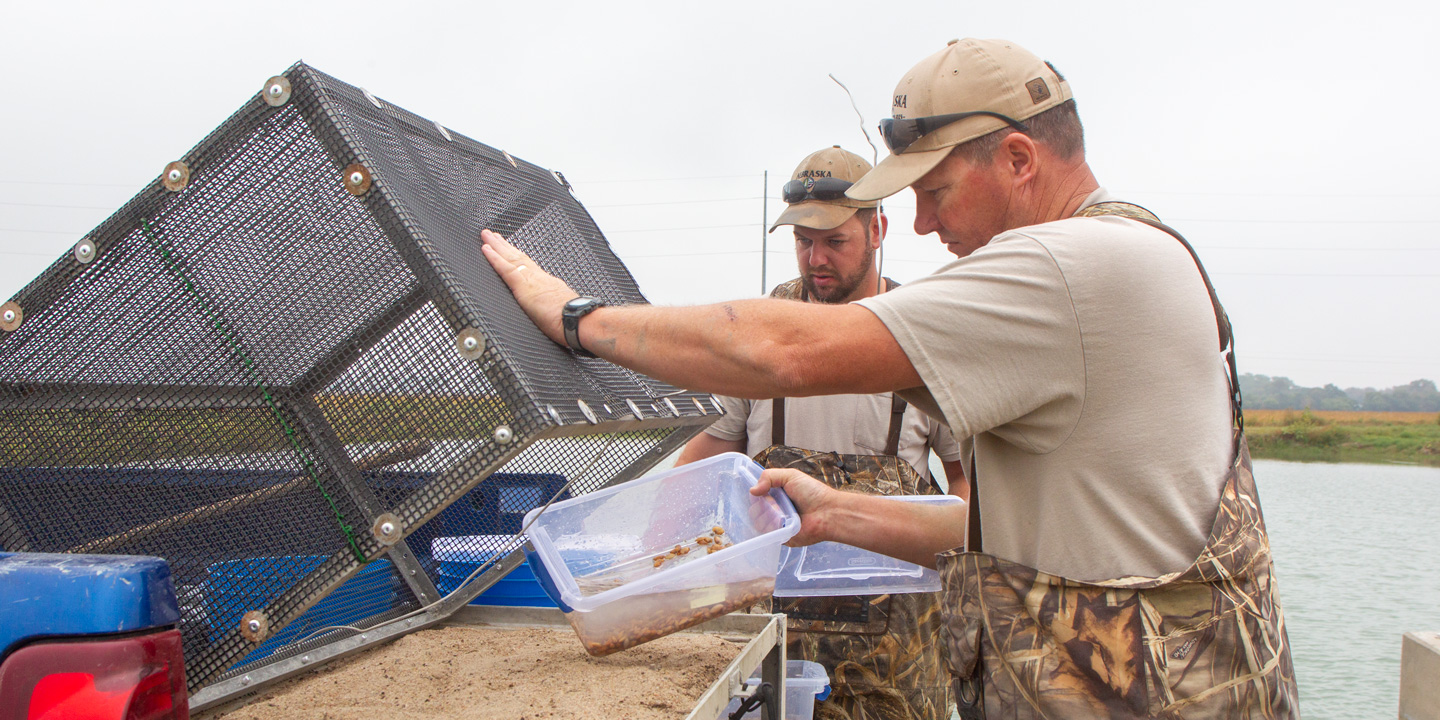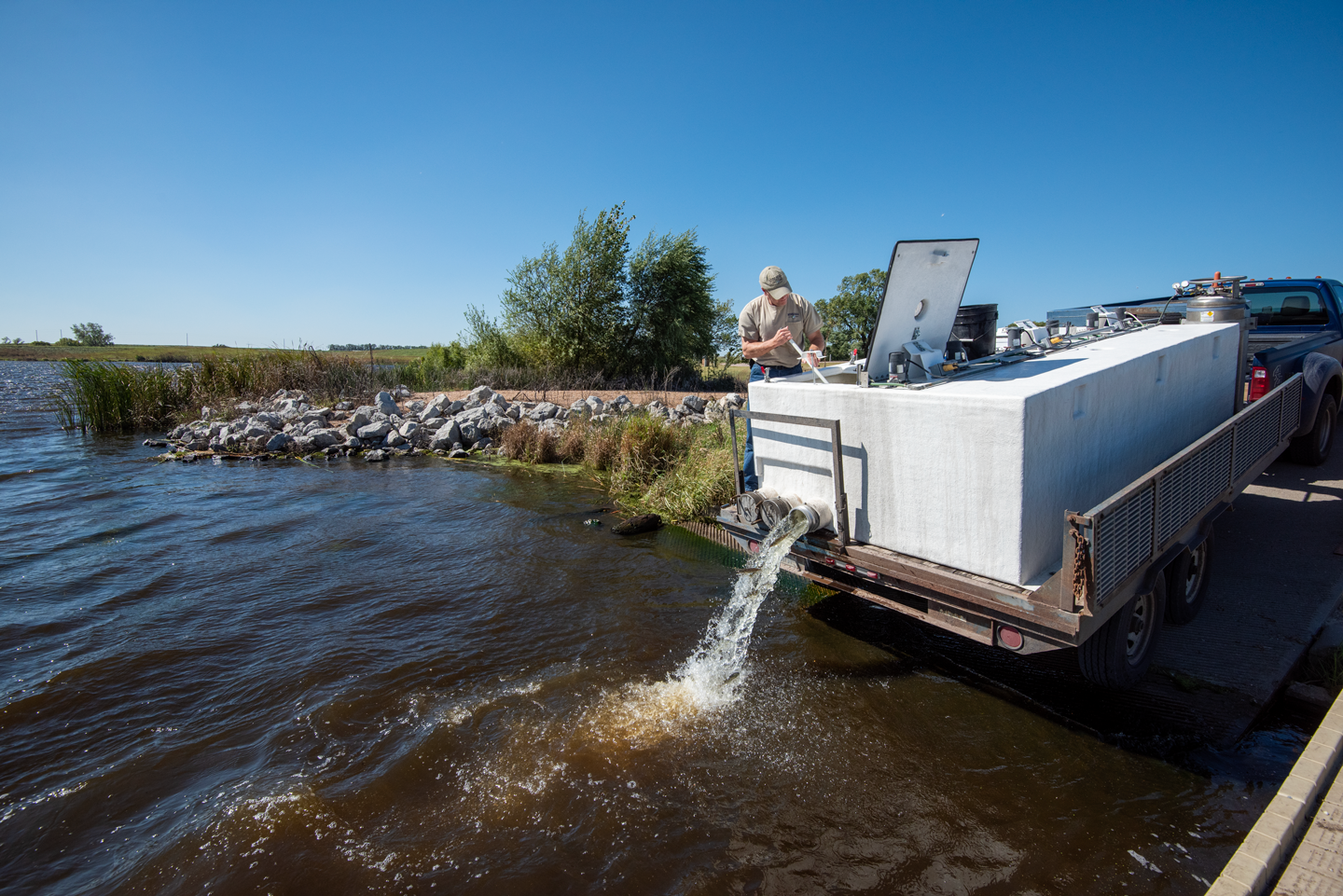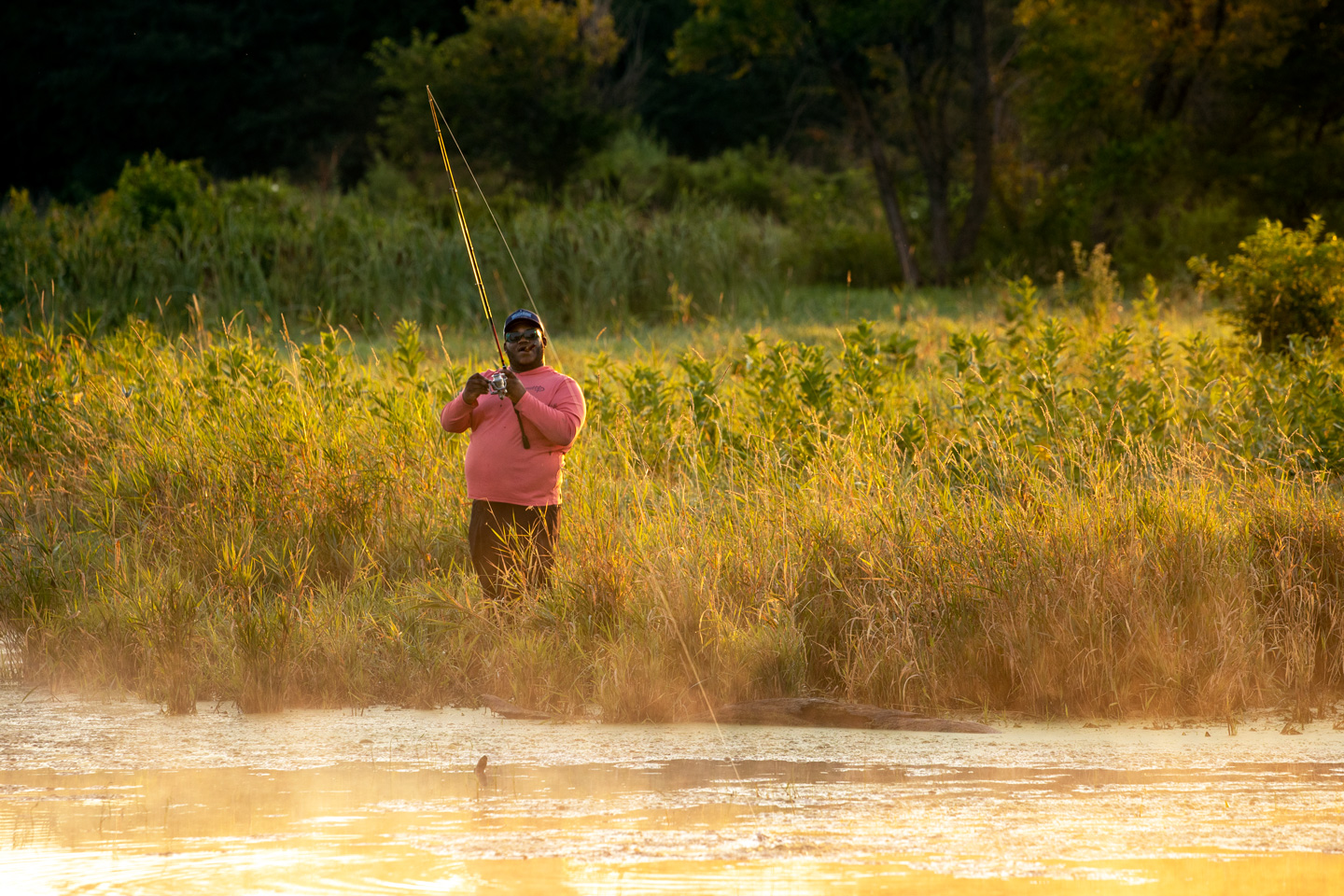Private waters program
Find resources aimed at helping private landowners manage their ponds to be excellent fisheries.
Privately owned waters in Nebraska provide substantial fishing opportunities, produce quality fisheries and are important habitats for native wildlife species. These include flowing waters (excluding the Missouri River), natural lakes, constructed lakes, sandpits and farm ponds. Surveys indicate that roughly 25 percent of licensed anglers fish private waters, and more than 25 percent of Master Angler fish are caught from private waters.
The Private Waters Program provides:
- Management and technical assistance for developing or restoring aquatic habitat to produce quality fish populations
- Fingerling bass and bluegill for stocking in water bodies that meet minimum requirements
- Increased fishing access to private waters
Pond, lake and sandpit information
The resources below provide helpful information pertaining to construction, aquatic species, habitat modifications, fish stocking, fishery management and potential maintenance problems at private ponds, lakes and sandpits in Nebraska.
The “Nebraska Pond Management Guide” contains information on pond construction, stocking, environmental modifications, managing a bass-bluegill-catfish pond, pond maintenance and resolving common pond problems.
You can view a digital copy of the book below. Request a hard copy of the book through this form. Hard copies are available at Nebraska Game and Parks district and field offices, where fisheries personnel can assist with private waters management questions.
The “Nebraska Pond Management Guide Series” provides in-depth information beyond the Nebraska Pond Management book. Select a topic below to download a PDF copy.
The “Managing Sandpits for Better Fishing” guidance document provides management information on existing and/or new sandpits.
Private waters specialist
A private waters specialist is available to discuss requests for technical assistance. Email our Private Waters Specialist, Jordan Katt, or call him at 402-471-5435.
Private waters FAQ
Get answers to your frequently asked questions about private waters.
Yes. Under most circumstances, a valid fishing permit is required of anyone over 15 years old, including the pond owner. The only exception is when a body of water is entirely on private land, has been entirely privately stocked with private hatchery-reared fish and doesn’t connect by inflow or outflow with other waters outside the pond owner’s property. An unlicensed angler who catches fish from such a body of water and wants to remove them from the premises must have a written statement from the pond owner listing the pond owner’s name and the number of fish taken.
Each year, the owners of new or newly renovated private ponds across the state apply to the Commission to be stocked. These ponds are inspected by a district biologist. When fish are available, those meeting the following minimum requirements receive largemouth bass and bluegill from state hatcheries.
- Pond must be one-half surface acre or larger
- 25 percent of the pond must be at least 10 feet deep (exceptions at biologist’s discretion)
- No other fish can present at the time of stocking (with the exception of recently stocked channel catfish)
- Minimum water clarity of 12 inches
- Fencing to exclude livestock from the pond required under certain instances
- State fishing regulations apply
The private waters stocking policy and application form for fish and pond management may be found below:
Stocking policy:
Requirements for privately owned waterbodies to be stocked by Nebraska Game and Parks Commission.
Stocking application:
Apply for fish for stocking privately owned waterbodies that meet the private waters stocking policy requirements above.
Completed forms
Completed forms can be emailed or sent via mail:
Nebraska Game and Parks Commission:
ATTN: Private Waters biologist
2200 N. 33rd St.
Lincoln, NE 68503
For questions, call at 402-471-5435.
No. Anglers are required to obtain permission before fishing.
Yes. Anglers must observe statewide bag and possession regulations, except when a body of water is entirely on private land, has been entirely privately stocked with private hatchery-reared fish and doesn’t connect by inflow or outflow with other waters outside the pond owner’s property. At their discretion, pond owners may set more restrictive regulations.
It is important for anglers to remember that it is a privilege to fish private ponds, and they must respect the land they are on and the pond in which they are fishing.




